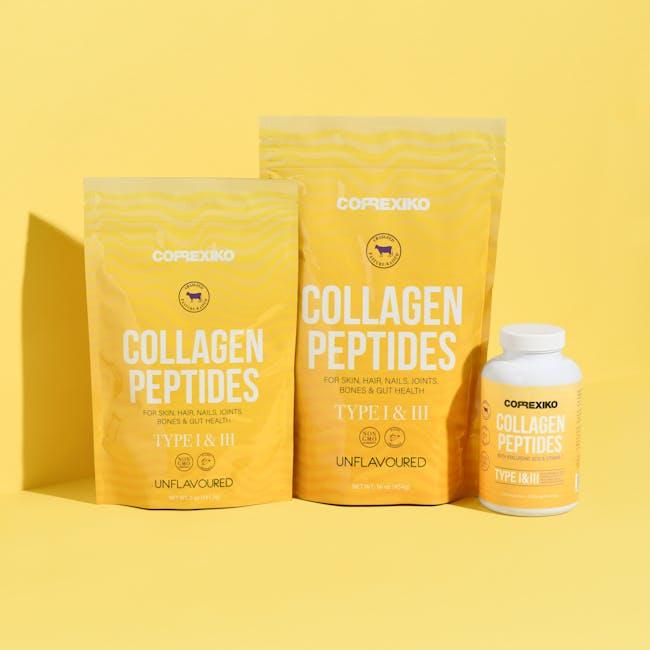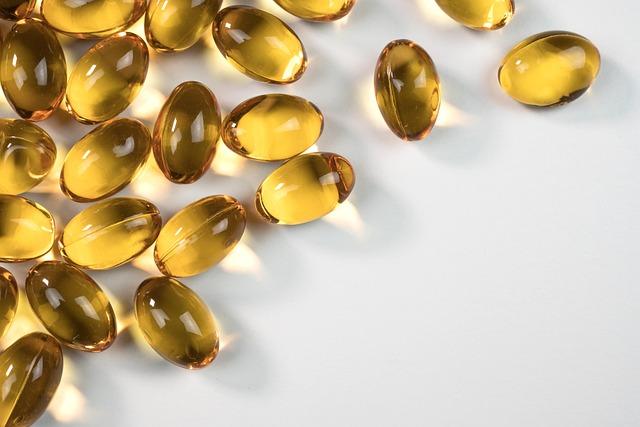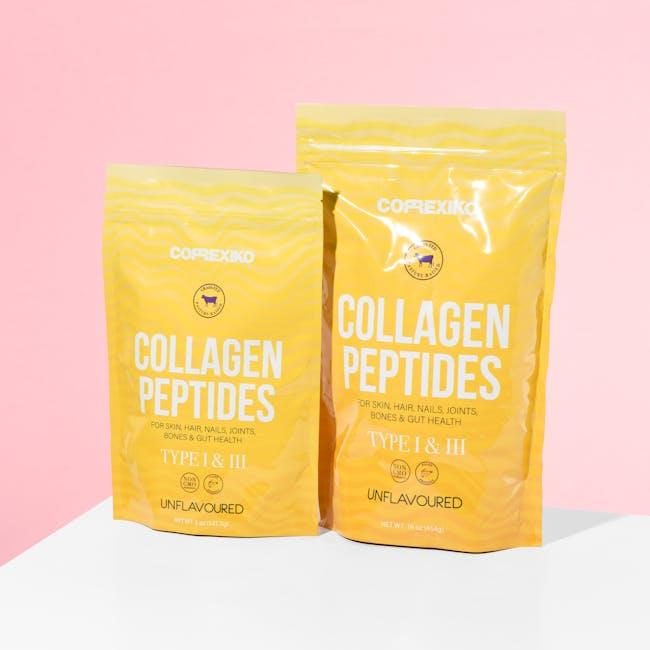In the ever-evolving landscape of fitness adn wellness, a new contender has emerged, capturing the attention of athletes, bodybuilders, and health enthusiasts alike: peptide supplements. These small chains of amino acids are garnering significant praise for their purported effects on muscle growth and recovery. But what exactly are peptides, and how do they function within our bodies? As science continues to unravel their potential, many are turning to these bioactive compounds, hoping to harness their benefits for enhanced performance and faster recovery.In this article, we will delve into the fascinating world of peptide supplements, exploring the science behind their efficacy, the role they play in muscle growth, and the substantial body of research that underpins their popularity. Join us as we dissect the facts, sift through the hype, and illuminate the path toward understanding how these powerful molecules may redefine the future of fitness.
Understanding Peptides: the Building Blocks of Muscle and Recovery
Peptides are short chains of amino acids, the essential building blocks of proteins in our bodies. These bioactive molecules play a crucial role in numerous physiological processes, including muscle repair and growth. When it comes to fitness and recovery, certain peptides have garnered attention for their potential to enhance performance. By stimulating the release of growth hormones and improving nutrient delivery to muscle tissues, peptides can create an surroundings conducive to muscle synthesis. Supplementing with specific peptide types,such as IGF-1 and GHK-cu,may promote faster recovery,enabling athletes to push their limits with less downtime.
Furthermore, the science behind peptides is compelling. Research highlights how they can influence metabolic pathways and modulate the body’s response to stress, leading to improved endurance and strength. Not only do they aid in muscle preservation during weight loss phases, but they also foster a regenerating effect on tissues, making them an appealing option for recovery-oriented training regimens. integrating peptides as a supplement can complement your fitness routine, offering a potent solution for those looking to expand muscle mass and optimize recovery through scientifically backed methods.

The Science Behind Peptide Supplements: Evidence-Based Benefits
Peptide supplements have garnered attention for their potential to enhance muscle growth and recovery, but what does the science actually say? At their core, peptides are short chains of amino acids that play crucial roles in various physiological processes. Research suggests that specific peptides can stimulate the release of growth hormone, which is a key player in muscle synthesis. Studies have shown that the following peptides may contribute to muscle growth and recovery:
- IGF-1 (Insulin-like Growth Factor 1): Promotes muscle regeneration and growth.
- GHK-Cu (Copper Peptide): Supports collagen production and tissue repair.
- BPC-157: Facilitates healing of muscles, tendons, and ligaments.
This biochemical signaling encourages the body to optimize its muscle-building capabilities while reducing recovery time after intense workouts.
In addition to their anabolic effects, certain peptides have demonstrated anti-inflammatory properties that can further aid recovery. This attribute is essential for athletes and fitness enthusiasts looking to push their limits without excessive downtime. Key benefits supported by evidence include:
- Enhanced Protein Synthesis: Peptides can accelerate muscle protein synthesis, allowing for quicker gains.
- Reduced Muscle Soreness: Some peptides may lessen delayed onset muscle soreness (DOMS).
- Improved Sleep Quality: Certain peptides help regulate sleep patterns, which are vital for recovery.
Such findings suggest that the strategic use of peptide supplements could provide a science-backed approach for optimizing physical performance and post-workout recovery.

Choosing the Right Peptides for Your Fitness Goals
As you embark on your fitness journey, selecting the right peptide supplements can significantly influence your outcomes. Consider your specific goals and what each peptide is designed to achieve. Some peptides are known for promoting muscle growth, while others enhance fat loss or expedite recovery. To streamline your decision-making, you may want to look into popular peptide categories:
- Growth Hormone Releasing Peptides (GHRPs): Stimulate your body’s natural growth hormone production, leading to increased muscle mass.
- IGF-1 (Insulin-like Growth Factor 1): Supports muscle tissue repair and growth, potentially enhancing strength and recovery times.
- CJC-1295: Optimizes growth hormone release and improves metabolic processes.
Additionally, understanding the benefits and dosage of your chosen peptides is crucial for achieving the desired results. Below is a simple comparison of some popular peptides based on their primary functions and recommended dosages:
| Peptide | Main Benefit | Recommended Dosage |
|---|---|---|
| GHRP-6 | Muscle growth and fat loss | 100-300 mcg daily |
| IGF-1 LR3 | Muscle recovery and hypertrophy | 20-40 mcg post-workout |
| CJC-1295 | Improved sleep and recovery | 1-2 mg, 2-3 times per week |
Ultimately, your choice should align not just with your current fitness aspirations but also with how your body responds to these supplements. Keeping track of your progress and adjusting your peptide selection as needed will help you optimize your fitness performance in the long run.

Maximizing Muscle Growth and Recovery: Practical Tips and Recommendations
To optimize your muscle growth and recovery, incorporating peptide supplements can be a game-changer. These bioactive molecules, which include growth hormones and amino acid chains, work synergistically in the body to stimulate muscle repair and growth. Some notable peptide supplements include:
- IGF-1 LR3: Promotes muscle hyperplasia and hypertrophy.
- Hexarelin: Enhances growth hormone release, improving recovery time.
- BPC-157: Known for its regenerative properties, aiding healing and reducing inflammation.
integrating these supplements into your routine can lead to significant improvements, but it’s essential to combine them with a well-structured training program and a nutritious diet. Understanding your body’s unique needs and monitoring how you respond to these peptides is crucial for maximizing their benefits. The following table summarizes the peptides and their primary functions:
| Peptide | primary Function |
|---|---|
| IGF-1 LR3 | Muscle growth and development |
| Hexarelin | Enhancing growth hormone levels |
| BPC-157 | Accelerating tissue repair |
Insights and Conclusions
the realm of peptide supplements presents a fascinating intersection of science and athleticism, offering exciting possibilities for muscle growth and recovery. As our understanding of these compounds deepens, so to does their potential to enhance performance and expedite recovery.While the allure of rapid results is undeniable, it is essential to approach peptide supplementation with a measured perspective, backed by evidence and guided by personal health needs. Whether you are a seasoned athlete or a fitness novice, integrating peptide supplements into your regimen may hold promise—but always remember that comprehensive training, balanced nutrition, and adequate rest are foundational to any prosperous fitness journey. As research continues to unfold, the future of peptide supplementation may yet reveal new dimensions, but for now, knowledge remains our most potent tool on the path to achieving our goals in health and fitness.

